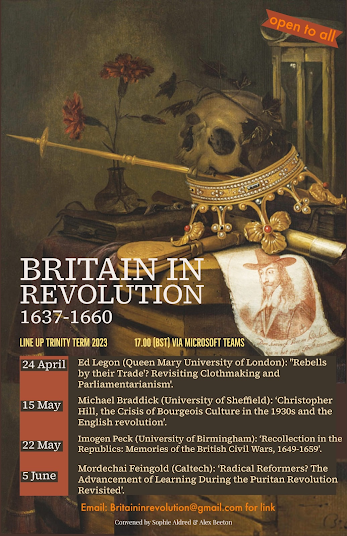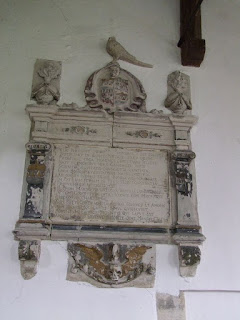British History in the 17th-century seminar (IHR) programme
4th May (hybrid) - Marianne Taatz-Jacobi (MLU Halle-Wittenberg), 'Text recycling in England during the 17th century: the transfer of ideas and debates in the English Civil War and the Republic (1638-1661)' 18th May (Zoom) - Diane Strange (Leicester), 'Prince Charles' Court of Wards and Liveries, 1618-1625' 1st June (hybrid) - Steve Pincus (Chicago), 'A Restoration Imperial Crisis?' 15th June (Zoom) - Rachel Foxley (Reading), 'Political polarisation in the English civil war: a digital humanities approach' 29th June (hybrid) - Nadine Akkerman (Leiden), 'From Winter Queen to Queen of Hearts: a new reading of Elizabeth Stuart' The first seminar of term will take place on Thursday 4th May at 5.30pm BST . This will be a hybrid seminar, held in-person in the Wolfson Room, NB02, IHR , and also online via Zoom.

